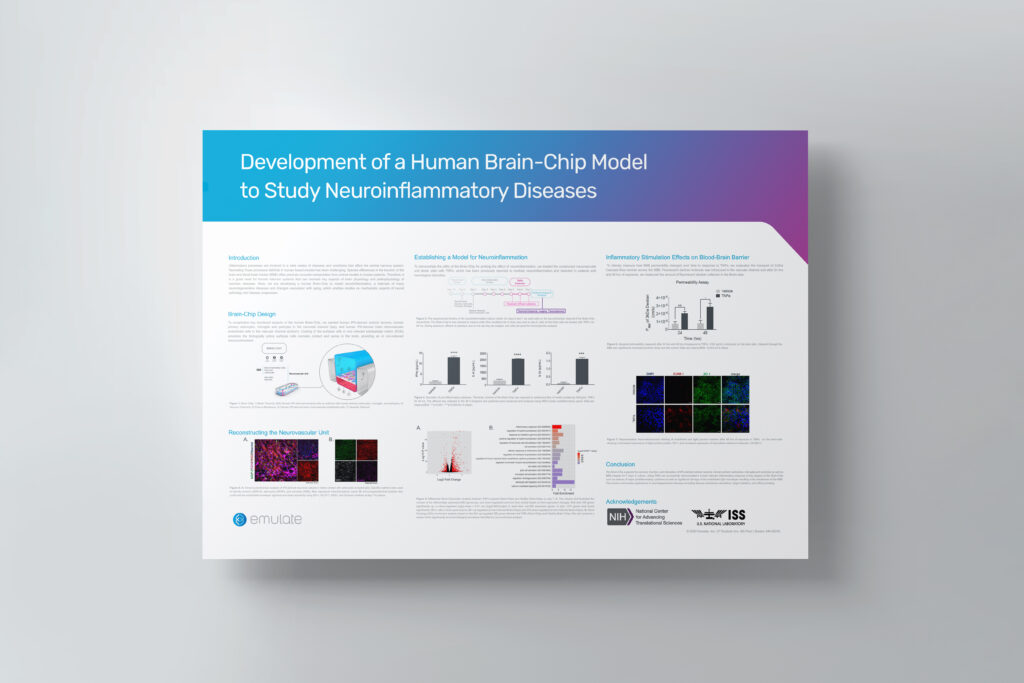Abstract
Species differences in brain function and blood-brain barrier often preclude accurate extrapolation from animal models to human patients. There is an unmet need for human relevant systems that can recreate key aspects of brain physiology and pathophysiology of common diseases. We are developing a human Brain-Chip to model neuroinflammation, a hallmark of many neurodegenerative diseases, to enable studies on mechanistic aspects of neural pathology and disease progression. We provide evidence that this complex human Brain-Chip model can support co-culture and establishment of extensive interconnection between human iPSC-derived neurons and primary glia cells (astrocytes and microglia). Human iPSC-derived brain endothelial cells successfully maintained at the vascular channel of the Brain-Chip in the presence of fluidic shear stress, while exhibiting hallmark features of the human blood-brain barrier, such as development of specific tight junctions and minimal barrier permeability. Exposure to inflammatory triggers (e.g. TNF-α) or toxic protein oligomeric species (e.g. alpha-synuclein), resulted in neuronal death, glia activation, increased secretion of the corresponding proinflammatory cytokines, and a compromised barrier function. In summary, our current findings demonstrate the development of a human Brain-Chip that could support the development of models for the study of neuroinflammation and blood-brain barrier disfunction in neurological disorders.

